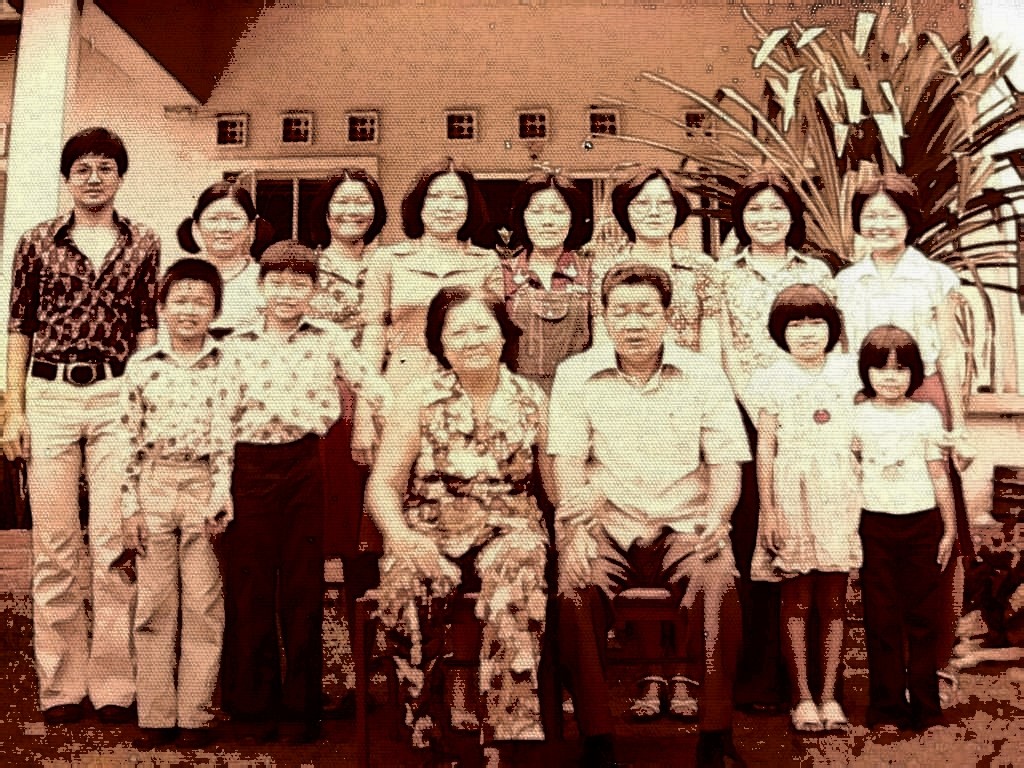I have been in the wealth advisory industry for more than 2 decades. In the course of my work, I have the privilege of working with clients from all walks of life. What I noticed is that many clients struggle with understanding the difference between estate and legacy planning and this has caused them to believe that they would only need to do estate and legacy planning “much later”.
But this thinking seems to have changed in the past few years, especially with clients who have already built up their wealth. After putting in place a comprehensive wealth plan that takes into consideration their purpose and life goals, we help with arranging their financial affairs and allocating their resources to give them a reliable income stream. With that out of the way, they would ponder more about what they should do to set up their estate and legacy plan.
The Difference Between Estate and Legacy Planning
Estate planning is the creation of a sound plan to manage an individual’s assets when he/she passes away. A sound plan would include 3 broad areas:
a) Estate distribution. This is typically the easier part where one thinks about whom they want to give their assets to upon their unfortunate demise.
b) Estate creation. This is the part of the plan where one ensures that what they leave behind is sufficient for their surviving beneficiaries. If it is not enough, one option is to use insurance products to “bridge the gap”.
c) Minimize estate leakages. Estate leakages can be in the form of unpaid taxes and medical expenses after death, personal guarantees that need to be settled or estate to be distributed to people whom they might not have the intention to give. Some estate preservation strategies include putting in place a comprehensive medical insurance plan, proper business succession plan, using trust structures, as well as revisiting their insurance and CPF nominations.
For young families or families who are still in the wealth accumulation stage, taking these appropriate steps to plan out their estate may be good enough as their immediate goal is to ensure that they have a realistic and sound plan to accumulate for their retirement and children’s education. But as these families mature and their wealth grows, besides having an estate plan, they may need to focus on legacy planning.
A good place to start planning for one’s legacy is to think about the values that they hold closely to their hearts. Values are the set of principles that they function under. E.g., hard work, respect, eating together as a family, volunteerism and more. But how does one pass on values as a legacy? As we know, children learn the values that are important to the family by observing the actions of their parents and other siblings. When the adults spend time with their parents, call their parents to check on them daily, take care of them when they are sick, their children learn filial piety, caring for one another, spending time, respect and many other values which are important to the family. When their wealth grows further, their legacy plan can include multi-generational gifting and charitable gifting. Here, legal financial structures like trust (either private or corporate trust) could be utilized for holding, managing and distributing their assets.
Some other questions one can ponder when they are structuring their estate & legacy plan are:
- If they are not constrained by resources, how would they like to plan differently?
- How should they structure their wealth so that it can translate to a legacy for future generations?
- What are the causes they care about?
- What are the opportunities they want to provide for their loved ones?
You may notice that #1, #3 and #4 are qualitative questions. They are less about how much they want to leave behind but more about what they wish to achieve in their lifetime and beyond. As a wealth adviser, we help to create sound structures to achieve our clients’ financial and non-financial legacies. We can set up guardrails so that their wealth will be used in the way they prefer. While legacy planning involves how one can structure their wealth to last for generations, the other less talked about but very important aspect of legacy planning is the values that one would like to pass down to their next generation that are expressed through their gifts. Once they are clear on that, we can then help them develop strategies to manage their wealth in support of their desires.
Having worked with many clients, here are a few examples of the values that clients have thought about and how their legacy plan, which we helped to create, is used to support them.
Example 1:
How wealth can be prudently managed and passed through generations. Some of our clients would like to create a portfolio or a portfolio within a trust that provides sustainable income for future generations. After listening to their wishes, we can use our expertise to help them create a portfolio with wishes or instructions on how the portfolio will be managed and income to be distributed so that the fund can last for as long as it is needed.
Example 2:
Strengthen family ties through bonding time together. In one of my clients’ cases, he has children in different countries, and his concern was that upon his unfortunate demise, his children may not meet as often. As a result, he is concerned that their relationship may be estranged. Hence, in his estate plan, he set aside a specific sum to contribute towards family trips and get-togethers during major life events.
Example 3:
Spirit of gifting and support. Many of our clients have more than enough and so they derive joy in giving and seeing others benefit from the gift. To help them fulfil this wish, we are able to help clients set aside a fund under a trust structure to support the charity that they care about. For some, it would be anything related to children such as children’s cancer, youth at risk, Straits Times pocket money and the like. Some clients also express this intention through their testamentary trust (via a will), either via a lump sum payout or an annual support.
Why Legacy Planning Is More Than Wealth Transfer?
My mom passed away on 3rd Dec 2019. When my 13 siblings (yes, I have 13!) and I reminisced about her legacy, we would fondly remember some of our experiences with her.

Family photo taken probably in 1976.
– Taking reference that my youngest sister looks like she’s 5 years old –
“Mother used to tell me that she didn’t know how to organise her kitchen cabinets so I would help her. The more I helped her, the more she praised me. She would say things like “You do it better than me. I could never do it like you.” So I would help her every night after washing dishes. Now it has become one of my life skills to organise my own kitchen cabinets and wardrobes”.
And even before the term “reduce, reuse, recycle” became the official slogan on NEA’s website, my mom taught me that everything has an alternative use and can be repaired. She would often say “A can is not for throwing away. You make 3 holes underneath and it can become a pot for a plant you snipped off while on a stroll’’.
My mom also taught us to save our pennies for many drops make an ocean.

Me and my mom, it’s our movie date.
While estate planning is about planning for one’s affairs upon their demise, legacy planning is about doing what is important while they are still alive, so that even after they are gone, their financial and non-financial desires can still be achieved. But one thing is certain, legacy planning is not just about money. Money is after all just an enabler. Beyond ensuring that your family is financially provided for, it is about extending the value of prudence, contentment, love for the family and leaving the world a better place for your future generations.
This is an original article written by Eleanor Ng, Associate Director of Advisory Team at Providend, Singapore’s First Fee-Only Wealth Advisory Firm.
For more related resources, check out:
1. Achieving Contentment Is the Greatest Gain
2. Life Decisions First Before Legacy Decisions
3. Post-Recovery Reflections on CI Coverage
We do not charge a fee at the first consultation meeting. If you would like an honest second opinion on your current estate plan, investment portfolio, financial and/or retirement plan, make an appointment with us today.

